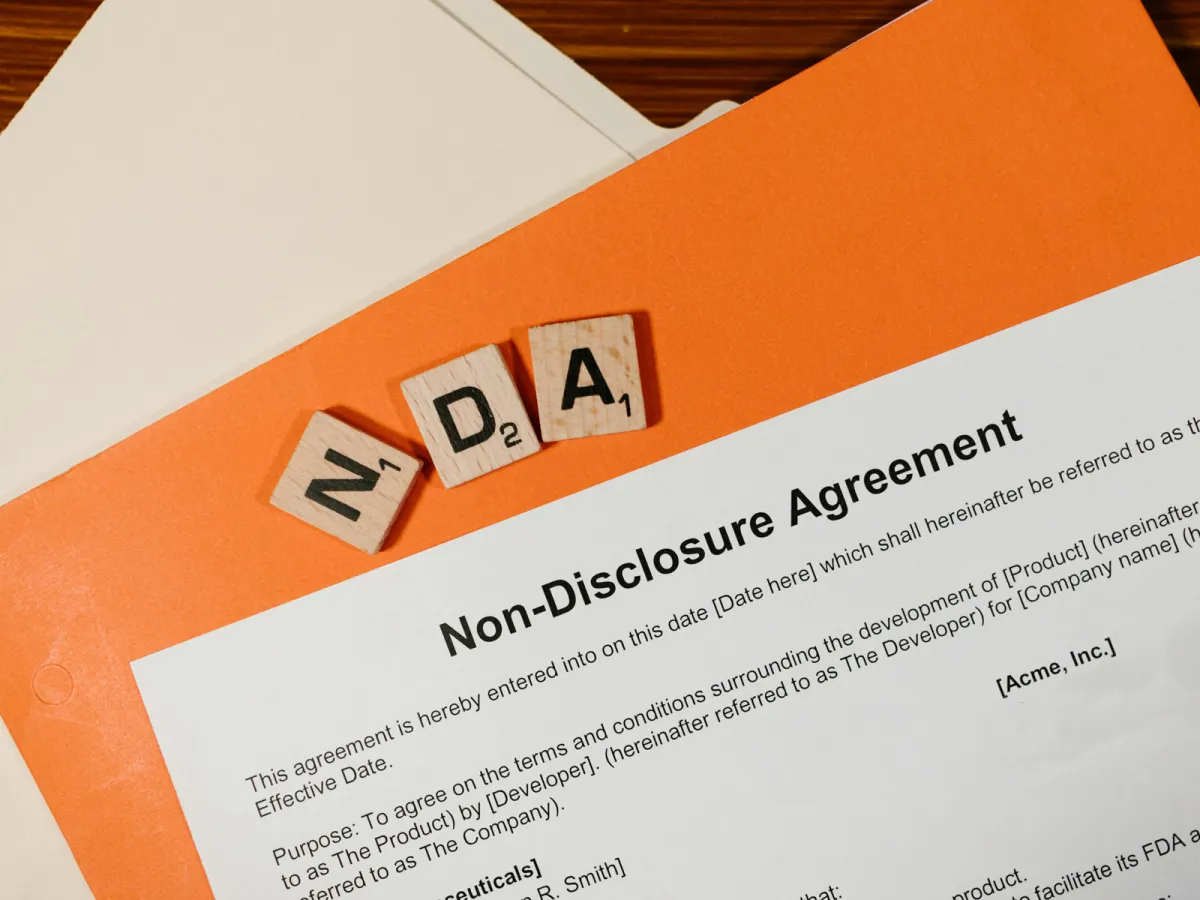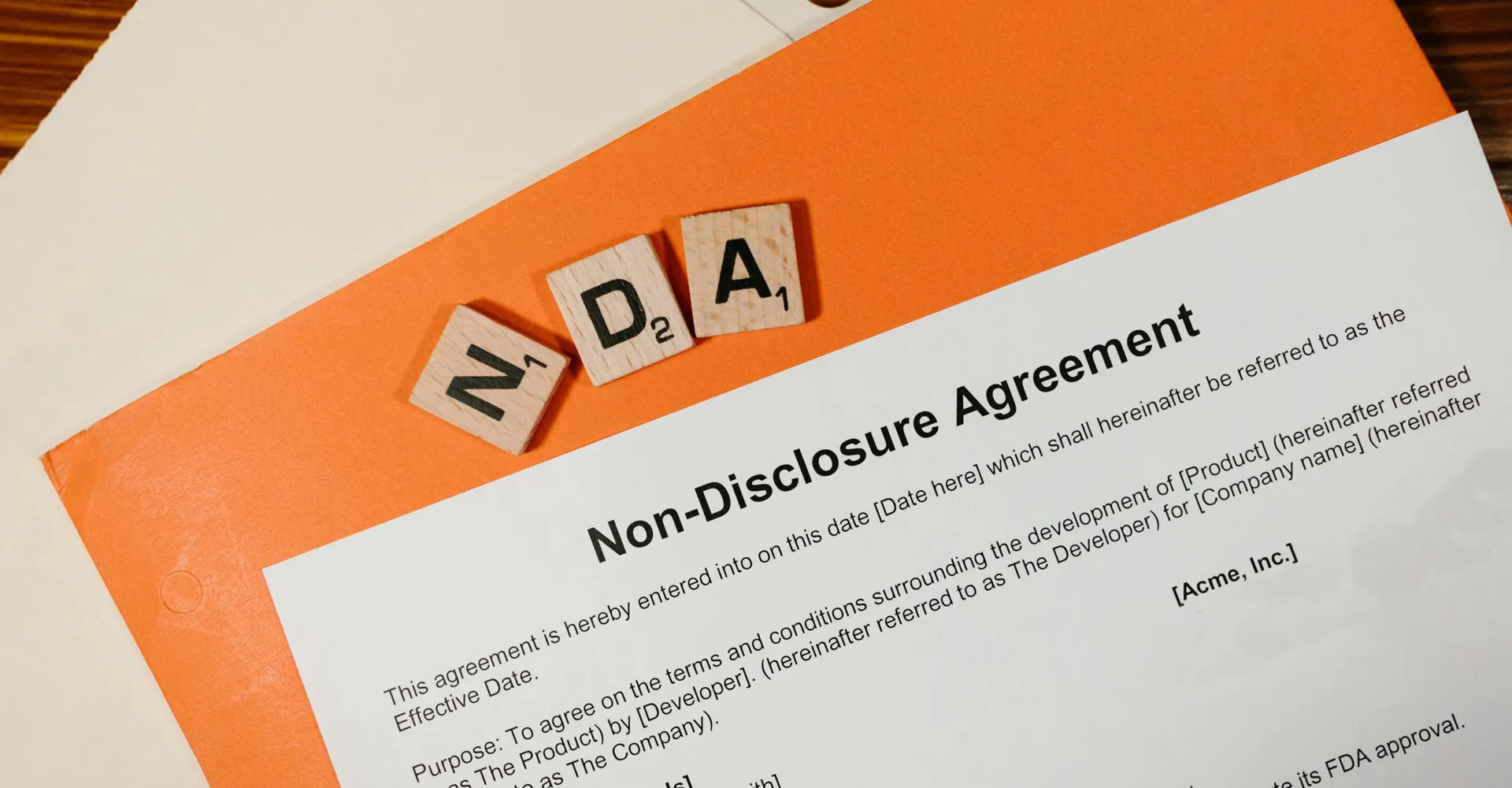
Ban on NDAs that Silence Abuse Cases
New UK Laws on NDAs - What Employers Need to Know
Non-Disclosure Agreements (NDAs) have long been a feature of employment contracts and settlement agreements. Often used to protect sensitive business information, NDAs can also play a role in resolving disputes confidentially. However, concerns have grown about how they can be misused. Particularly in cases involving workplace harassment, discrimination, or misconduct.
Contact a business employment law expert on 0113 320 5000
From 1 October 2025, the Victims and Prisoners Act 2024 (VPA) will come into force across England and Wales. These changes aim to prevent NDAs, confidentiality clauses in contracts and settlement agreements (together referred to in this article as ‘NDA’) from silencing victims or shielding employers from accountability. For business owners, HR professionals, and legal advisors, this marks an important shift in risk management when dealing with an NDA.
Why Are NDA Laws Changing?
The misuse of NDAs has drawn public and political attention in recent years. Particularly in high-profile cases where employees were pressured into signing agreements that prevented them from speaking out about harassment or assault in the workplace. As well as Racism, homophobia, or other forms of discrimination, bullying or abusive managerial behaviour.

These concerns were especially heightened during the #MeToo movement, which exposed how some NDAs were used not just for confidentiality, but to silence those wanting to speak out about such abuse.
The Government committed to reforming NDA usage in workplace situations to ensure that individuals understand their rights and are not unlawfully gagged from reporting misconduct.
What Are the Key Changes to NDA Law?
The new rules are being introduced through an amendment to employment and contract law. While the full guidance will evolve as the new law develops, the core principles are clear.
1. NDAs Cannot Be Used to Prevent Reporting Misconduct
An NDA or confidentiality clause cannot prevent an employee or ex-employee from reporting a crime or wrongdoing to the police, a regulatory body, or a legal advisor.
This includes:
- Sexual harassment or assault
- Discrimination under the Equality Act 2010
- Health and safety breaches
- Whistleblowing disclosures
This was already the position under existing law in principle, but the new legislation makes this much more explicit.
2. Clauses Must Be Clear and Understandable
NDAs and confidentiality clauses must now be written in plain English. Legal jargon or vague wording will not be acceptable if it risks misleading an employee about their rights.
Employees must be able to understand:
- What information they can and cannot share
- Who they can speak to (e.g. police, medical professionals, therapists, lawyers)
- That the NDA does not prevent them from reporting wrongdoing
3. Legal Advice Requirement Reinforced
Employees signing an NDA or settlement agreement must already receive independent legal advice. Under the new law, that legal advice must specifically cover:
- The nature and limitations of any confidentiality clauses
- The individual's ongoing rights to report or speak out
This is designed to prevent situations where individuals are unaware of their ability to report misconduct or believe they are entirely silenced.
What Does This Mean for Employers?
If your business uses NDAs as part of employment contracts or settlement agreements, this is the moment to reassess your approach. While NDAs are still lawful and useful in many contexts, their scope has narrowed. Misuse could now present serious legal and reputational consequences. Your NDAs could be unenforceable if clauses are not compliant. This can lead to tribunal claims where an employee alleges pressure or misrepresentation.
Message our business employment law team at employment@winstonsolicitors.co.uk
When Are NDAs Still Appropriate?
NDAs still have a legitimate place in employment law when used correctly. Employers can continue to use confidentiality clauses to protect commercially sensitive information or trade secrets. As well as maintain confidentiality of the financial terms of a settlement.
However, NDAs cannot be used to stop someone from reporting harassment, discrimination or abuse. They also can’t be used to prevent cooperation with police or regulatory investigations or silence whistleblowers.
What Should Employers Do Now?
1. Review Your Standard Contracts and Policies
Ensure that any standard employment contracts or settlement agreement templates you use are fully up to date and reflect the new legal position.
Check that:
- Clauses are clear and specific
- Language does not suggest a total gagging of the employee
- Confidentiality provisions are appropriate to the situation
2. Train Your HR and Legal Teams
Anyone involved in drafting or negotiating employment contracts should be briefed on the changes. This includes:
- HR managers
- Internal legal counsel
- External advisors or consultants
Make sure your teams understand where NDAs can and can’t be used, and how to respond to employee questions or concerns.
3. Be Transparent with Employees
If you use confidentiality clauses, be upfront about why they’re being included, what they cover, and what they do not cover. This builds trust and reduces the likelihood of disputes later.
How Winston Solicitors Can Help with Your NDAs
Our experienced Employment Law team can review your existing contracts and settlement templates and redraft confidentiality clauses to ensure compliance. We will advise you on when an NDA is appropriate and when it isn’t.
In addition, we can support any negotiations around more complicated exits and provide strategic advice to reduce legal risk. We also offer training for HR teams and line managers to help them navigate difficult conversations with care and legal clarity.
NDAs are Still a Useful Tool for Your Business
The new laws on NDAs mark a clear shift towards greater transparency, accountability, and employee protection in the workplace. Employers can no longer rely on standard wording or assume that confidentiality means silence.
Handled correctly, NDAs remain a useful part of employment law. Handled poorly, they can create serious risk. The message is clear - review your documents, train your team, and act with integrity.
If your business needs support reviewing its NDA or settlement agreement practices, speak to our Employment Law team today. Call 0113 320 5000 or email employment@winstonsolicitors.co.uk to get started.

